Discover Radical Research Podcast
Radical Research Podcast

148 Episodes
Reverse
If this conversation seems easy, it's because we are back in the cold waters of our favorite nation. Herein, we dig into the good deeds of Norway's often vexing but always pleasing The 3rd and the Mortal. We attempt to peel away the band's many layers and untangle its knotty evolution. Should you care about cutting-edge Norweird - and if you have stuck with us for all this time, surely you do - please join us on this most titillating conversation.
Note I:
After all that flugelhorn talk, turns out Jeff mis-horned. It’s actually a crumhorn on Gryphon’s Red Queen to Gryphon Three album. A crumhorn!
Note II:
The Ulver song title we were trying to remember: “I Love You, but I Prefer Trondheim (Parts 1-4) (A. Wiltzie vs. Stars of the Lid remix)” (from First Decade in the Machines, 2003)
Note III:
The Radical Research Patreon page is now set up and ready for your patronage. We are offering tiered subscription levels for those who want a set-it-and-forget-it donation option. As ever, if you choose to support us, we are humbled and grateful! patreon.com/RadicalResearchPodcast
Note IV:
All past Radical Research episodes can be found here, where you can also find Jeff’s Peter Steele book, Soul on Fire…and more to come soon! Radicalresearch.org
Note V:
We are regularly posting newer and older episode to our Youtube channel. Please check that out here and please subscribe if you wanna aid in getting all our coverage into more people's feeds: https://www.youtube.com/@radicalresearchpodcast4942
Music cited in order of appearance:
“Ring of Fire” (Sorrow, 1994)
“Why So Lonely” (Tears Laid in Earth, 1994)
“Death Hymn” (Tears Laid in Earth, 1994)
“In Mist Shrouded” (Tears Laid in Earth, 1994)
“Neurosis” (Nightswan, 1995)
“Commemoration” (Painting on Glass, 1996)
“Persistent and Fleeting” (Painting on Glass, 1996)
“Veiled Exposure” [two parts] (Painting on Glass, 1996)
“Stream” (In This Room, 1997)
“Sophisticated Vampires” (In This Room, 1997)
“Did You” (In This Room, 1997)
“Zeppoliner” (Memoirs, 2002)
“Spider” (Memoirs, 2002)
Radical Research is a conversation about the inner- and outer-reaches of rock and metal music. This podcast is conceived and conducted by Jeff Wagner and Hunter Ginn. Though we consume music in a variety of ways, we give particular privilege to the immersive, full-album listening experience. Likewise, we believe that tangible music formats help provide the richest, most rewarding immersions and that music, artwork, and song titles cooperate to produce a singular effect on the listener. Great music is worth more than we ever pay for it.
If Radical Research exists to dissect the most esoteric and weird and unique recordings in the spheres of rock and metal, then we are sorely overdue to feature the singular debut by Type O Negative. 'Slow, Deep and Hard' began life as Repulsion's one and only demo, 'None More Negative,' recorded in late 1989 and early 1990. After a name change and a contract with Roadrunner Records, the album was re-mastered, the song order re-configured, and the 7-minute "Glass Walls of Limbo (Dance Mix)" added, 'Slow, Deep and Hard' was born. Join us as we plunge into all the blood, fire and death of this completely unique album in the Type O Negative discography.
Note I:
The Radical Research Patreon page is now set up and ready for your patronage. We are offering tiered subscription levels for those who want a set-it-and-forget-it donation option. As ever, if you choose to support us, we are humbled and grateful! patreon.com/RadicalResearchPodcast
Note II:
All past Radical Research episodes can be found here, where you can also find Jeff’s Peter Steele book, Soul on Fire…and more to come soon! Radicalresearch.org
Note III:
Our Youtube channel is firing back up again. Please access it at the link provided and please SUBSCRIBE! You'll be helping us reach even more people with your subscription and views. We'll regularly be adding many more older episodes to the channel for your listening/viewing pleasure. https://www.youtube.com/@radicalresearchpodcast4942
Music cited in order of appearance:
[all from Type O Negative - Slow, Deep and Hard, 1991]
“Unsuccessfully Coping With the Natural Beauty of Infidelity”
“Der Untermensch”
“Xero Tolerance”
“Prelude to Agony”
“Glass Walls of Limbo (Dance Mix)”
“Gravitational Constant”
Radical Research is a conversation about the inner- and outer-reaches of rock and metal music. This podcast is conceived and conducted by Jeff Wagner and Hunter Ginn. Though we consume music in a variety of ways, we give particular privilege to the immersive, full-album listening experience. Likewise, we believe that tangible music formats help provide the richest, most rewarding immersions and that music, artwork, and song titles cooperate to produce a singular effect on the listener. Great music is worth more than we ever pay for it.
This was an unplanned conversation about an unplanned, unexpected, shocking event in our lives. It’s just Hunter and I talking about a dear friend that recently passed, one of our own leaving earthly bonds. And in our reveries and remembrances we left out so much: Tom Hailey was the beer/wine buyer at the Raleigh Whole Foods and held that position for many years there, beloved by the entire staff. He had a college radio metal show where he adopted the persona of The Unholy One and spoke to (no, COMMANDED!) his audience in a John Tardy-like roar. We also failed to mention the time Hunter and I, in 2019, listened to Voivod’s Nothingface with Tom, all of us air drumming, air guitaring, air bassing and singing every bit of it, all the way through……these and many more memories only scratch the surface of our friend Tom and why we’re going to miss him so damn much.
Note I:
CLOVER CAT RESCUE donation link: https://tinyurl.com/donate-CCR Please note "In Memory of Tom Hailey" when you give
or VENMO @clovercatrescue
Note II:
We think Tom would be amused by the gaff of a gaff Hunter makes when talking about post-Confessor bands. He said he called Fly Wheel Fly Leaf, when that band was actually named Fly Machine. Hunter knows a lot, and we can’t fault him for not knowing the specifics of post-Confessor tree branches.
Note III:
The Radical Research Patreon page is now set up and ready for your patronage. We are offering tiered subscription levels for those who want a set-it-and-forget-it donation option. As ever, if you choose to support us, we are humbled and grateful! patreon.com/RadicalResearchPodcast
Note IV:
All past Radical Research episodes can be found here, where you can also find Jeff’s Peter Steele and Fates Warning books, Hunter’s Deserts of Hex Volume 2…and more to come soon! Radicalresearch.org
Music cited in order of appearance:
Die Kreuzen, “Elizabeth” (Century Days, 1988)
Forbidden, “Forbidden Evil” (Forbidden Evil, 1988)
Confessor, “Condemned” (Condemned, 1991)
Carcass, “Feast on Dismembered Carnage” (Reek of Putrefaction, 1988)
The Champs, “Andres Segovia Interests Me” (III, 1997)
The Chameleons, “A Person Isn’t Safe Anywhere These Days” (Script of the Bridge, 1983)
Everything Everything, “Pizza Boy” (Raw Data Feel, 2022)
Radical Research is a conversation about the inner- and outer-reaches of rock and metal music. This podcast is conceived and conducted by Jeff Wagner and Hunter Ginn. Though we consume music in a variety of ways, we give particular privilege to the immersive, full-album listening experience. Likewise, we believe that tangible music formats help provide the richest, most rewarding immersions and that music, artwork, and song titles cooperate to produce a singular effect on the listener. Great music is worth more than we ever pay for it.
When God decides to record his first metal album, he will be disappointed to remember that Obliveon already recorded its masterpiece, Nemesis, in the Year of Our Lord, 1993. On its latest episode, Radical Research conducts a much-belated investigation of the first two albums by Montreal's most underrated sons, Obliveon. In the early '90s, the band treated a small-but-fanatical audience to highly-advanced, cutting edge, cosmic death thrash in the forms of 1990's From This Day Forward and the aforementioned Nemesis. Still unsung after all these years, Radical Research is here to set the record straight and shed light on one of underground metal's true greats.
Note I:
The “pointless, ridiculous 7 inch" Hunter mentions in this episode is this one, a Coroner covers split between his band, Canvas Solaris, and our phurry phriends phrom Pharaoh:
https://www.discogs.com/release/2586288-Pharaoh-6-Canvas-Solaris-Tribute-To-Coroner
Note II:
Speaking of covers: Jeff mentions Agoraphobic Nosebleed’s cover of Voivod’s “Forgotten in Space.” He says the cover if about 6 minutes long, but it’s actually a shorter 3:48. Don’t trust Jeff on ANYTHING he says about Voivod…
Note III:
The Radical Research Patreon page is now set up and ready for your patronage. We are offering tiered subscription levels for those who want a set-it-and-forget-it donation option. As ever, if you choose to support us, we are humbled and grateful! patreon.com/RadicalResearchPodcast
Note IV:
All past Radical Research episodes can be found here, where you can also find Jeff’s Peter Steele and Fates Warning books, Hunter’s Deserts of Hex Volume 2…and more to come soon! Radicalresearch.org
Music cited in order of appearance:
“From this Day Forward” (From This Day Forward, 1990)
“Fiction of Veracity” (From This Day Forward, 1990)
“Access to the Acropolis” (From This Day Forward, 1990)
“Chronocraze” (From This Day Forward, 1990)
“Nemesis” (Nemesis, 1993)
“Obscure Mindways” (Nemesis, 1993)
“Factory of Delusions” (Nemesis, 1993)
“Strays of the Soul” (Nemesis, 1993)
Radical Research is a conversation about the inner- and outer-reaches of rock and metal music. This podcast is conceived and conducted by Jeff Wagner and Hunter Ginn. Though we consume music in a variety of ways, we give particular privilege to the immersive, full-album listening experience. Likewise, we believe that tangible music formats help provide the richest, most rewarding immersions and that music, artwork, and song titles cooperate to produce a singular effect on the listener. Great music is worth more than we ever pay for it.
Norwegian vocalist Gaahl is a man who we deeply admire...his work with Gorgoroth and Trelldom, in particular, has a special place in the blackest ventricles of our hearts. Same, too, for his band Gaahls Wyrd, In our initial listens to the band's freshly-released (as of this writing and recording) Braiding the Stories album, we find ourselves facing one of the greatest post=black metal Norweird offerings in a decade. We are particularly excited by final song "Flowing Starlight," which we dissect here for your enlightenment and/or amusement.
Note I:
The Radical Research Patreon page is ready for your patronage. We are offering tiered subscription levels for those who want a set-it-and-forget-it donation option. As ever, if you choose to support us, we are humbled and grateful! patreon.com/RadicalResearchPodcast
Note II:
All past Radical Research episodes can be found here, where you can also find Jeff’s Peter Steele biography, Soul on Fire...…and more to come soon! Radicalresearch.org
Music cited in order of appearance:
Gaahls Wyrd, "Flowing Starlight" (Braiding the Stories, 2025)
Radical Research is a conversation about the inner- and outer-reaches of rock and metal music. This podcast is conceived and conducted by Jeff Wagner and Hunter Ginn. Though we consume music in a variety of ways, we give particular privilege to the immersive, full-album listening experience. Likewise, we believe that tangible music formats help provide the richest, most rewarding immersions and that music, artwork, and song titles cooperate to produce a singular effect on the listener. Great music is worth more than we ever pay for it.
Restless creative spirit Mat Kvohst McNerney has been roaming esoteric realms since the mid '90s, giving voice to a wide variety of bands, be it the international collective Code, Norweird supernovas Dodheimsgard, the Beastmilk/Grave Pleasures hauntings, and the incomparable Hexvessel, We feature these projects and more in this survey of one of the most distinctive vocalists we've ever had the pleasure to enjoy.
Note I: The Radical Research Patreon page is now set up and ready for your patronage. We are offering tiered subscription levels for those who want a set-it-and-forget-it donation option. As ever, if you choose to support us, we are humbled and grateful! patreon.com/RadicalResearchPodcast
Music cited in order of appearance:
Vomitorium, “Rhapsody in Blasphemy” (Hauriam Oscula De Te demo, 1994)
The Tragedians, “Stoneblind” (Krull demo, 1996)
Void, “Pathogen Bombshell” (Posthuman, 2003)
Code, “A Cloud-Formed Teardrop Asylum” (Nouveau Gloaming, 2005)
Code, “I Hold Your Light“ (Resplendent Grotesque, 2009)
Decrepit Spectre, “Stranded Angels” (Coal Black Hearses, 2008)
Dodheimsgard, “Apocalypticism” (Supervillain Outcast, 2007)
Dodheimsgard, “Chrome Balaclava” (Supervillain Outcast, 2007)
Gangrenator, “Cyclops Tribes of Inner Earth” (Tales from a Thousand Graves, 2010)
Beastmilk, “Fear Your Mind” (Climax, 2013)
Beastmilk, “Surf the Apocalypse” (Climax, 2013)
Grave Pleasures, “Infatuation Overkill” (Motherblood, 2017)
Hexvessel, “Bog Bodies” (Kindred, 2020)
Hexvessel, “A Cabin in Montana” (Polar Veil, 2023)
Radical Research is a conversation about the inner- and outer-reaches of rock and metal music. This podcast is conceived and conducted by Jeff Wagner and Hunter Ginn. Though we consume music in a variety of ways, we give particular privilege to the immersive, full-album listening experience. Likewise, we believe that tangible music formats help provide the richest, most rewarding immersions and that music, artwork, and song titles cooperate to produce a singular effect on the listener. Great music is worth more than we ever pay for it.
Inspired by Jeff's soot-damaged, waterlogged, promo-punched copy of his treasured US CD version of this 24-song behemoth, we take an hour and 40 minutes to revel in this intensely special 1990 compilation. The epitome of the Earache label at its peak, this was a fun episode to record, captured partly in Savannah while we hung out at Hunter's and partly remotely, from our separate outposts. From the ruins of a devastating fire...GRINDCRUSHER lives on Radical Research!
Note I:
The Radical Research Patreon page is now set up and ready for your patronage. We are offering tiered subscription levels for those who want a set-it-and-forget-it donation option. As ever, if you choose to support us, we are humbled and grateful! patreon.com/RadicalResearchPodcast
Note II:
All past Radical Research episodes can be found here, where you can also find Jeff’s Peter Steele and Fates Warning books, Hunter’s Deserts of Hex Volume 2…and more to come soon! Radicalresearch.org
Music cited in order of appearance:
Morbid Angel, "Chapel of Ghouls"
Repulsion, "Radiation Sickness"
Carcass, "Exhume to Consume"
Godflesh, "Streetcleaner"
Terrorizer, "Dead Shall Rise"
Hellbastard, "Justly Executed"
Carnage, "Malignant Epitaph"
Naked City, "Osaka Bondage"
Filthy Christians, "Extremely Bad Breath"
Old Lady Drivers, "Colostomy Grab-Bag"
Intense Degree, "I"ve Got a Cure"
Sore Throat, "Horrendify and Kill"
Napalm Death, "Malicious Intent"
Entombed, "But Life Goes On"
Nocturnus, "BC/AD"
Bolt Thrower, "World Eater"
Lawnmower Deth, "Satan's Trampoline"
Cadaver, "Hypertrophian"
Sweet Tooth, "Fat City"
Mighty Force, "Thrashing a Dead House"
Spazztic Blurr, "He-Not-A-Home-Me-Marco"
Heresy, "Release"
Unseen Terror, "Divisions"
Napalm Death, "You Suffer"
Radical Research is a conversation about the inner- and outer-reaches of rock and metal music. This podcast is conceived and conducted by Jeff Wagner and Hunter Ginn. Though we consume music in a variety of ways, we give particular privilege to the immersive, full-album listening experience. Likewise, we believe that tangible music formats help provide the richest, most rewarding immersions and that music, artwork, and song titles cooperate to produce a singular effect on the listener. Great music is worth more than we ever pay for it
We're incorrigible Genesis fans. We hail every bit of output from 1970 to 1978. We even go further than that. But here, for episode 127, we stop and lovingly gaze at the band's final album of the '70s, the first after the departure of guitarist Steve Hackett, and a work that some mark as the band's departure from prog rock. Not so, say we! Spectral, ghostly, gauzy, playful, lush as all get-out...and total prog. We laud this fascinating transitional effort by one of the greatest bands of all time...prog or otherwise,
Note I:
The Radical Research Patreon page is now set up and ready for your patronage. We are offering tiered subscription levels for those who want a set-it-and-forget-it donation option. As ever, if you choose to support us, we are humbled and grateful! patreon.com/RadicalResearchPodcast
Note II:
All past Radical Research episodes can be found here, where you can also find Jeff’s Peter Steele and Fates Warning books, Hunter’s Deserts of Hex Volume 2…and more to come soon! Radicalresearch.org
Music cited in order of appearance:
All songs from Genesis, And Then There Were Three (1978)
“Down and Out”
“Undertow”
“Ballad of Big”
“Snowbound”
“Burning Rope”
“Deep in the Motherlode”
“Many Too Many”
“Scenes from a Night’s Dream”
“Say It’s Alright Joe”
“The Lady Lies”
“Follow You, Follow Me”
Radical Research is a conversation about the inner- and outer-reaches of rock and metal music. This podcast is conceived and conducted by Jeff Wagner and Hunter Ginn. Though we consume music in a variety of ways, we give particular privilege to the immersive, full-album listening experience. Likewise, we believe that tangible music formats help provide the richest, most rewarding immersions and that music, artwork, and song titles cooperate to produce a singular effect on the listener. Great music is worth more than we ever pay for it.
For our 126th episode, Radical Research travels to the farthest reaches of our favorite country and we do so with a rare companion, Agalloch lynchpin, John Haughm. In this episode, we dive into the discography of Thule, a progressive rock band that defies the rules of progressive rock. Dark, nocturnal, frozen, magical - Thule's seaborne prog offers the listener glimpses into forbidden worlds. We hope that this episode will seduce you into taking the risk that is well worth the reward.
Note I:
We were stoked as hell to have Agalloch’s John Haughm with us for this episode. As such, we go on even more tangents than when we get up to that nonsense when left alone. So, tangents on Emperor, on Genesis, on ZZ Top, and on much more as we trawl the murky, exotic waters of Thule.
Note II:
The Radical Research Patreon page is now set up and ready for your patronage. We are offering tiered subscription levels for those who want a set-it-and-forget-it donation option. As ever, if you choose to support us, we are humbled and grateful! patreon.com/RadicalResearchPodcast
Note III:
All past Radical Research episodes can be found here, where you can also find Jeff’s Peter Steele and Fates Warning books, Hunter’s Deserts of Hex Volume 2…and more to come soon! Radicalresearch.org
Music cited in order of appearance:
“Supernova” (Graks, 1997)
“Krigens Ansikt” (as Ultima Thule, I Lovens Navn, 1985 demo)
“Over De Iskledte Fjell” (Ultima Thule, 1987)
“Kolonisasjon” (Ultima Thule, 1987)
“Håp” (Natt, 1990)
“Langfærd” (Natt, 1990)
“Den Store Ordan” (Frostbrent, 1993)
“Aeventyr” (Frostbrent, 1993)
“Daga” (Graks, 1997) into Minus the Bear, “Broken China” (Lost Loves, 2014)
“Soldansen” (Graks, 1997)
“Hjaerteslag” (Graks,1997)
“Liquid” (Liquid [Rock and Roll Dream], 2005
“Aurora B” (Liquid [Rock and Roll Dream], 2005)
“Reason” (Liquid [Rock and Roll Dream], 2005)
Radical Research is a conversation about the inner- and outer-reaches of rock and metal music. This podcast is conceived and conducted by Jeff Wagner and Hunter Ginn. Though we consume music in a variety of ways, we give particular privilege to the immersive, full-album listening experience. Likewise, we believe that tangible music formats help provide the richest, most rewarding immersions and that music, artwork, and song titles cooperate to produce a singular effect on the listener.
Radical Research has risen! For our first episode following the tragic event of Jeff's house fire and the loss of members of his beautiful feline family, we have chosen to return with an exploration of one of the most emotional and intense albums of the 1990's, Anathema's Eternity. This album takes the weight of the profoundest Pink Floyd and marries it with the doom and feedback sorcery upon which Anathema built its reputation. Please join us for this most cathartic and, ultimately, affirmative of episodes.
Note I:
The Radical Research Patreon page is now set up and ready for your patronage. We are offering tiered subscription levels for those who want a set-it-and-forget-it donation option. As ever, if you choose to support us, we are humbled and grateful! patreon.com/RadicalResearchPodcast
Note II:
All past Radical Research episodes can be found here, where you can also find Hunter’s Deserts of Hex Volume 2…and more to come soon! Radicalresearch.org
Music cited in order of appearance:
[all selections from Anathema’s Eternity, 1996]
“Sentient”
“Angelica”
“The Beloved”
“Eternity Part 1”
“Eternity Part 2”
“Hope”
“Suicide Veil”
“Radiance”
“Far Away”
“Eternity Part 3”
“Cries on the Wind”
“Ascension”
Radical Research is a conversation about the inner- and outer-reaches of rock and metal music. This podcast is conceived and conducted by Jeff Wagner and Hunter Ginn. Though we consume music in a variety of ways, we give particular privilege to the immersive, full-album listening experience. Likewise, we believe that tangible music formats help provide the richest, most rewarding immersions and that music, artwork, and song titles cooperate to produce a singular effect on the listener. Great music is worth more than we ever pay for it.
What started as a joke ("send us a $10,000 donation and we'll do an episode on Bathory's disasterpiece flop, 'Octagon'!") Well, we wondered what that kind of episode would be like, so we decided to just chat about it and see what happened. No big plan, no huge overarching analyses...just a little walk through the ugly, clattering eighth album by a man and band we absolutely worship. We count 'Octagon' as one of the worst two albums ever released by a legendary band...the other one, 'St. Anger' by Metallica, is even worse than this.
Note I:
The Radical Research Patreon page is now set up and ready for your patronage. We are offering tiered subscription levels for those who want a set-it-and-forget-it donation option. As ever, if you choose to support us, we are humbled and grateful! patreon.com/RadicalResearchPodcast
Note II:
All past Radical Research episodes can be found here, where you can also find Jeff’s Peter Steele and Fates Warning books…and more to come soon! Radicalresearch.org
Music cited in order of appearance:
“Crosstitution” (Requiem, 1994)
“Immaculate Pinetree Road #930” (Octagon, 1995)
“Schizianity” (Octagon, 1995)
“Crawl to Your Cross” (1988 recording)
“Sociopath” (Octagon, 1995)
“Grey” (Octagon, 1995)
“Century” (Octagon, 1995)
“War Supply” (Octagon, 1995)
“Deuce” (Octagon, 1995)
“33 Something” (Octagon, 1995)
“Born to Die” (Octagon, 1995)
Radical Research is a conversation about the inner- and outer-reaches of rock and metal music. This podcast is conceived and conducted by Jeff Wagner and Hunter Ginn. Though we consume music in a variety of ways, we give particular privilege to the immersive, full-album listening experience. Likewise, we believe that tangible music formats help provide the richest, most rewarding immersions and that music, artwork, and song titles cooperate to produce a singular effect on the listener. Great music is worth more than we ever pay for it.
As Hunter so aptly calls it early in this short episode: “Fiend for Blood is an EP that is in the process of dying.”
After the classic Mental Funeral of 1991, Autopsy released the Fiend for Blood EP as its follow-up. Those who were there in 1991 would have already recognized Mental Funeral as a towering achievement of death metal and, indeed, time has proven us right on that score. But Fiend for Blood impressed less. It was even more garage-y, it was a mere 12 minutes, and, at first, it felt like a mere afterthought. In the thinking of at least one Radical Research host, however, it is the band’s second-best recording in their entire discography. We discuss this 12-minute EP in…well, a few more than 12 minutes.
Note I:
The Radical Research Patreon page is now set up and ready for your patronage. We are offering tiered subscription levels for those who want a set-it-and-forget-it donation option. As ever, if you choose to support us, we are humbled and grateful! patreon.com/RadicalResearchPodcast
Note II:
All past Radical Research episodes can be found here, where you can also find Jeff’s Peter Steele and Fates Warning books…and more to come soon! Radicalresearch.org
Music cited in order of appearance:
“Fiend for Blood” (Fiend for Blood, 1992)
“Keeper of Decay” (Fiend for Blood, 1992)
“Squeal Like a Pig” (Fiend for Blood, 1992)
“Ravenous Freaks” (Fiend for Blood, 1992)
“Battery Acid Enema” (Acts of the Unspeakable, 1992)
“A Different Kind of Mindfuck” (Fiend for Blood, 1992)
“Dead Hole” (Fiend for Blood, 1992)
Radical Research is a conversation about the inner- and outer-reaches of rock and metal music. This podcast is conceived and conducted by Jeff Wagner and Hunter Ginn. Though we consume music in a variety of ways, we give particular privilege to the immersive, full-album listening experience. Likewise, we believe that tangible music formats help provide the richest, most rewarding immersions and that music, artwork, and song titles cooperate to produce a singular effect on the listener. Great music is worth more than we ever pay for it.
Australia’s Vauxdvihl (or, for a short time, Vaudeville) came quickly, evolved swiftly, and left behind a beautiful corpus of 19 documented songs. We have stood in awe for three decades of this short but impressive discography, and episode 123 of our weird little podcast is an attempt to bring you into the Vauxdvihl fold. (Beware of the ridiculous amount of Fates Warning mentions here…or make a drinking game of it.)
Note I:
The Radical Research Patreon page is now set up and ready for your patronage. We are offering tiered subscription levels for those who want a set-it-and-forget-it donation option. As ever, if you choose to support us, we are humbled and grateful! patreon.com/RadicalResearchPodcast
Note II:
All past Radical Research episodes can be found here, where you can also find Jeff’s Peter Steele and Fates Warning books…and more to come soon! Radicalresearch.org
Music cited in order of appearance:
Intro: “Summoning” (Siberian Church Recordings, 2001)
“To Dimension Logic” (To Dimension Logic, 1994)
“Questions or Misanthropy” (To Dimension Logic, 1994)
“Separate Ends” (To Dimension Logic, 1994)
“Comedy of Errors” (To Dimension Logic, 1994)
“Philosophia Mosaica” (To Dimension Logic, 1994)
“In Search of Forever” (To Dimension Logic, 1994)
“Assassination” (Vog, 1998)
“The Funeral Party” (Vog, 1998)
“For the Son Has Gone to Hell” (Vog, 1998)
“Plots, (T or F) Are a Necessary Thing?” (Siberian Church Recordings, 2001)
“Isis/Pekt” (Siberian Church Recordings, 2001)
“Movement” (Siberian Church Recordings, 2001)
Radical Research is a conversation about the inner- and outer-reaches of rock and metal music. This podcast is conceived and conducted by Jeff Wagner and Hunter Ginn. Though we consume music in a variety of ways, we give particular privilege to the immersive, full-album listening experience. Likewise, we believe that tangible music formats help provide the richest, most rewarding immersions and that music, artwork, and song titles cooperate to produce a singular effect on the listener. Great music is worth more than we ever pay for it.
Jeff: “Was talking with my friend S. Craig Zahler a few days ago, and we were discussing Sarcofago’s 1987 debut, I.N.R.I. Zahler noted that there are some bewildering timing issues in 'Nightmare,' and how he’d like Hunter ('who is 20 times the drummer I am') to try and identify what the hell’s going on. I put this quandary/query to Hunter and let ‘er rip.”
Note I:
The Radical Research Patreon page is now set up and ready for your patronage. We are offering tiered subscription levels for those who want a set-it-and-forget-it donation option. As ever, if you choose to support us, we are humbled and grateful! patreon.com/RadicalResearchPodcast
Note II:
All past Radical Research episodes can be found here, where you can also find Jeff’s Peter Steele and Fates Warning books…and more to come soon! Radicalresearch.org
Music cited in order of appearance:
Sarcofago, “Nightmare” (I.N.R.I., 1987)
Radical Research is a conversation about the inner- and outer-reaches of rock and metal music. This podcast is conceived and conducted by Jeff Wagner and Hunter Ginn. Though we consume music in a variety of ways, we give particular privilege to the immersive, full-album listening experience. Likewise, we believe that tangible music formats help provide the richest, most rewarding immersions and that music, artwork, and song titles cooperate to produce a singular effect on the listener. Great music is worth more than we ever pay for it.
This episode brings to a close our periodic investigations of the Steven Wilson-curated 'Intrigue' compilation. Covering progressive sounds in UK alternative/post-punk music from 1979-89, 'Intrigue' nails its intention, proving that, while traditional prog rock may have waned in the '80s, that spirit of adventure and invention remained alive through the work of dozens and dozens of UK music-makers in this time period. This episode focuses on Kate Bush, Dif Juz, Cardiacs, Dead Can Dance, SLAB!, Momus, No-man and a host of others.
Note I:
If you don’t want to hear about our awesome Patreon supporters and how YOU TOO can support us, and if you don’t want to hear about Deserts of Hex #2, which YOU ALSO would love to read…then skip to the 9:07 mark of this show where we finally start talking about the subject at hand: Intrigue compilation, CD 4. Thank you.
Note II:
The Radical Research Patreon page is now set up and ready for your patronage. We are offering tiered subscription levels for those who want a set-it-and-forget-it donation option. As ever, if you choose to support us, we are humbled and grateful! patreon.com/RadicalResearchPodcast
Note III:
All past Radical Research episodes can be found here, where you can also find Jeff’s Peter Steele and Fates Warning books…and more to come soon! Radicalresearch.org
Music cited in order of appearance:
intro: Talk Talk, “Living in Another World” (The Colour of Spring, 1986)
[all snippets are taken directly from the Intrigue compilation; the following indicates where the songs originally appeared]
Kate Bush, “Waking the Witch” (Hounds of Love, 1985)
This Mortal Coil, “Ivy and Neet” (Filigree & Shadow, 1986)
Perennial Divide, “Beehead” (Beehead 7”, 1987)
The Sisters of Mercy, “This Corrosion” (Floodland, 1987)
O Yuki Conjugate, “Ascension” (Into Dark Water, 1987)
Dif Juz, “No Motion” (Lonely is An Eyesore, 4AD compilation, 1987)
SLAB!, “Gutter Busting” (Descension, 1987)
Momus, “Murderers, the Hope of Women” (Murderers, the Hope of Women, 1987)
Dead Can Dance, “The Host of Seraphim” (The Serpent’s Egg, 1988)
Cardiacs, “R.E.S.” (A Little Man and a House and the Whole World Window, 1988)
The The, “Good Morning Beautiful” (Mind Bomb, 1989)
The Shamen, “Omega Amigo” (Omega Amigo single, 1989)
No-Man, “Night Sky, Sweet Earth” (Speak, 1999 re-recording of 1989 version, originally from The Girl from Missouri EP)
Kitchens of Distinction, “The 3rd Time We Opened the Capsule” (12” single, 1989)
Radical Research is a conversation about the inner- and outer-reaches of rock and metal music. This podcast is conceived and conducted by Jeff Wagner and Hunter Ginn. Though we consume music in a variety of ways, we give particular privilege to the immersive, full-album listening experience. Likewise, we believe that tangible music formats help provide the richest, most rewarding immersions and that music, artwork, and song titles cooperate to produce a singular effect on the listener. Great music is worth more than we ever pay for it.
UNTIL WE PERCEIVE BIFROST...THIS is Radical Research
In this .5 episode (the longest point-5 we’ve done to date), we offer up 6 subjects of previous Radical Research episodes and take a look at their activities since we last put our spotlight on them. (As we explain at the beginning, the sound quality is rough this time, as Hunter is still reeling from Hurricane Helene’s effects on his household's technology.)
Note I:
The Radical Research Patreon page is now set up and ready for your patronage. We are offering tiered subscription levels for those who want a set-it-and-forget-it donation option. As ever, if you choose to support us, we are humbled and grateful! patreon.com/RadicalResearchPodcast
Note II:
All past Radical Research episodes can be found here, where you can also find Jeff’s Peter Steele and Fates Warning books…and more to come soon! Radicalresearch.org
Music cited in order of appearance:
Hail Spirit Noir, “The Road to Awe” (Fossil Gardens, 2024)
Hammers of Misfortune, “Ghost Hearts” (Overtaker, 2022)
Manes, “End of the River” (Pathei Mathos, 2024)
Diskord, “Cogged Pother” (Bipolarities, split with ATVM, 2024)
Xysma, “Midnight Call” (No Place Like Alone, 2024)
Kayo Dot, “Get Out of the Tower” (Moss Grew on the Swords and Plowshares Alike, 2021)
Radical Research is a conversation about the inner- and outer-reaches of rock and metal music. This podcast is conceived and conducted by Jeff Wagner and Hunter Ginn. Though we consume music in a variety of ways, we give particular privilege to the immersive, full-album listening experience. Likewise, we believe that tangible music formats help provide the richest, most rewarding immersions and that music, artwork, and song titles cooperate to produce a singular effect on the listener. Great music is worth more than we ever pay for it.
Switzerland’s deadliest export, Coroner, which sliced and sawed its way through the metal landscape of the ‘80s and early ‘90s, has finally found its way under the Radical Research microscope. From the savage thrashing mayhem of R.I.P. to the reclined elegance of its final missives, Radical Research dives deeply into the methods and madness of one of metal’s ablest battalions.
Note I:
The Radical Research Patreon page is now set up and ready for your patronage. We are offering tiered subscription levels for those who want a set-it-and-forget-it donation option. As ever, if you choose to support us, we are humbled and grateful! patreon.com/RadicalResearchPodcast
Note II:
All past Radical Research episodes can be found here, where you can also find Jeff’s Peter Steele and Fates Warning books…and more to come soon! Radicalresearch.org
Music cited in order of appearance:
“Pale Sister” (Mental Vortex, 1991)
“Son of Lilith” (Mental Vortex, 1991)
“Spectators of Sin” (Death Cult demo, 1986)
“Coma” (R.I.P., 1987)
“Absorbed” (Punishment for Decadence, 1988)
“R.I.P.” (R.I.P., 1987)
“Shadow of a Lost Dream” (Punishment for Decadence, 1988)
Canvas Solaris, “Arc-Lite” (Tribute to Coroner, 2010)
“Paralized, Mesmerized” (Grin, 1993)
“D.O.A.” (No More Color, 1989)
“Tunnel of Pain” (No More Color, 1989)
“Read My Scars” (No More Color, 1989)
“Grin (Nails Hurt)” (Grin, 1993)
“Shifter” (Coroner, 1995)
“Gliding Above While Being Below” (Coroner, 1995)
Radical Research is a conversation about the inner- and outer-reaches of rock and metal music. This podcast is conceived and conducted by Jeff Wagner and Hunter Ginn. Though we consume music in a variety of ways, we give particular privilege to the immersive, full-album listening experience. Likewise, we believe that tangible music formats help provide the richest, most rewarding immersions and that music, artwork, and song titles cooperate to produce a singular effect on the listener. Great music is worth more than we ever pay for it.
A quick look at Queen’s “The Prophet’s Song,” its a cappella middle section, and the treatment it was given by one Jeff Scott Soto in various live performances. It’ll all make a little more sense when you listen…
Note I:
The Radical Research Patreon page is now set up and ready for your patronage. We are offering tiered subscription levels for those who want a set-it-and-forget-it donation option. As ever, if you choose to support us, we are humbled and grateful! patreon.com/RadicalResearchPodcast
Note II:
All past Radical Research episodes can be found here, where you can also find Jeff’s Peter Steele and Fates Warning books…and more to come soon! Radicalresearch.org
Music cited in order of appearance:
Queen, “The Prophet’s Song” (A Night at the Opera, 1975)
Jeff Scott Soto (fronting Sons of Apollo), “The Prophet’s Song” (live in Orlando, FL, February 2018)
Radical Research is a conversation about the inner- and outer-reaches of rock and metal music. This podcast is conceived and conducted by Jeff Wagner and Hunter Ginn. Though we consume music in a variety of ways, we give particular privilege to the immersive, full-album listening experience. Likewise, we believe that tangible music formats help provide the richest, most rewarding immersions and that music, artwork, and song titles cooperate to produce a singular effect on the listener. Great music is worth more than we ever pay for it.
Is there an album more representative of this podcast's main focus? Not outside of Norway, there isn’t. Montréal’s DBC (Dead Brain Cells) released ‘Universe’ in 1989, a tech-y cosmic opus of 37:26 that manages to cover the big bang, the evolution of life, the fall of the dinosaurs, man’s eventual dominance on Earth, and humanity's possible future in the album's brief but eventful duration. Join us as we spelunk through the black holes and blocky, monolithic riffs of DBC's second and final album…
Note I:
All Ye Who Enter: Tangents on other Canadian metal bands will happen throughout this episode. And a Swiss one, too. And time machines…and the moon…and Phil Anselmo’s Mind Over Four shirt.
Note II:
Although Hunter claims Garth Richardson (aka GGGarth) produced Helmet’s Betty, the RR fact-checking department can find no evidence that the guy was anywhere near that album. Hunter apologizes and says, “Total brain fart. It was T-Ray [Todd Ray].”
Note III:
The Radical Research Patreon page is now set up and ready for your patronage. We are offering tiered subscription levels for those who want a set-it-and-forget-it donation option. As ever, if you choose to support us, we are humbled and grateful! patreon.com/RadicalResearchPodcast
Note IV:
All past Radical Research episodes can be found here, where you can also find Jeff’s Peter Steele and Fates Warning books…and more to come soon! Radicalresearch.org
Music cited in order of appearance:
[all snippets from DBC, Universe, 1989]
“The Genesis Explosion”
“Heliosphere”
“Primordium”
“Exit the Giants”
“Rise of Man”
“Estuary”
“Humanity’s Child”
“Phobos & Deimos”
“Threshold” “Infinite Universe”
Radical Research is a conversation about the inner- and outer-reaches of rock and metal music. This podcast is conceived and conducted by Jeff Wagner and Hunter Ginn. Though we consume music in a variety of ways, we give particular privilege to the immersive, full-album listening experience. Likewise, we believe that tangible music formats help provide the richest, most rewarding immersions and that music, artwork, and song titles cooperate to produce a singular effect on the listener. Great music is worth more than we ever pay for it.
This is a “careful for what you wish for” kind of thing. For years and years, we hoped that we could hear the mighty Steve DiGiorgio’s bass work with more clarity on Death’s 1991 masterpiece, Human. Once we could, thanks to the 2011 reissue, we relented and realized we preferred the original version after all. We present this mini-episode in good humor and with an anxious heart, because we hope no one, least of all DiGiorgio himself, understands this is not a critique of his playing. The man is a god to us…we just prefer the original sound of the 1991 ‘Human’ over the 2011 reissue. This shit’s important!
Note I:
The Radical Research Patreon page is now set up and ready for your patronage. We are offering tiered subscription levels for those who want a set-it-and-forget-it donation option. As ever, if you choose to support us, we are humbled and grateful! patreon.com/RadicalResearchPodcast
Note II:
All past Radical Research episodes can be found here, where you can also find Jeff’s Peter Steele and Fates Warning books…and more to come soon! Radicalresearch.org
Music cited in order of appearance:
Death, “See Through Dreams” (Human, 1991 [2011 reissue])
Death, “Suicide Machine” (Human, 1991 [2011 reissue])
Death, “Vacant Planets” (Human, 1991 [2011 reissue])
Radical Research is a conversation about the inner- and outer-reaches of rock and metal music. This podcast is conceived and conducted by Jeff Wagner and Hunter Ginn. Though we consume music in a variety of ways, we give particular privilege to the immersive, full-album listening experience. Likewise, we believe that tangible music formats help provide the richest, most rewarding immersions and that music, artwork, and song titles cooperate to produce a singular effect on the listener. Great music is worth more than we ever pay for it.




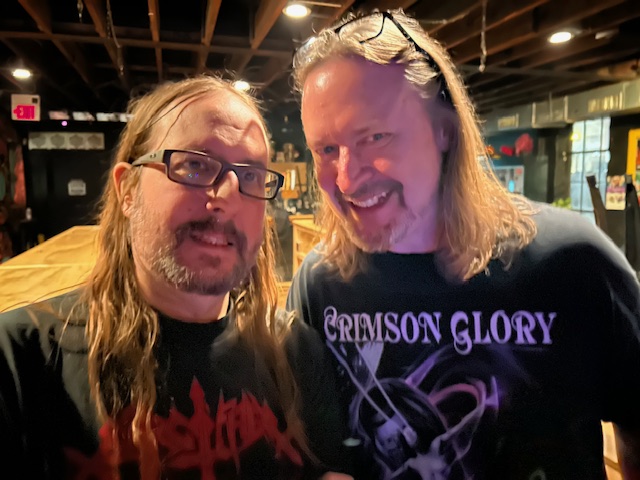
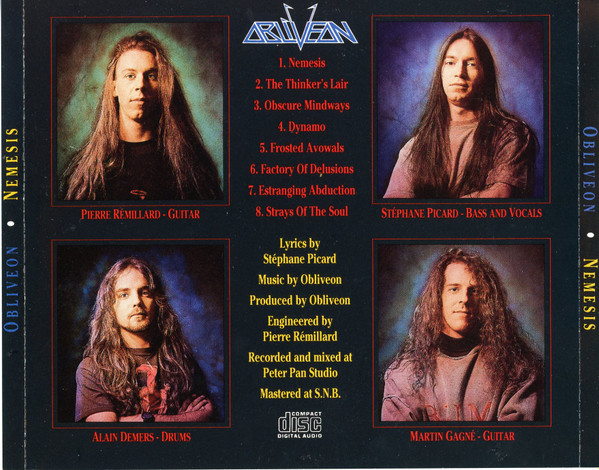
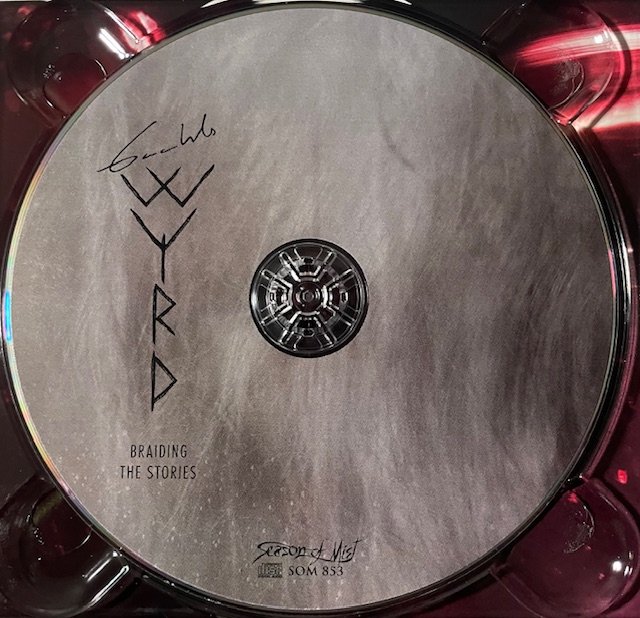

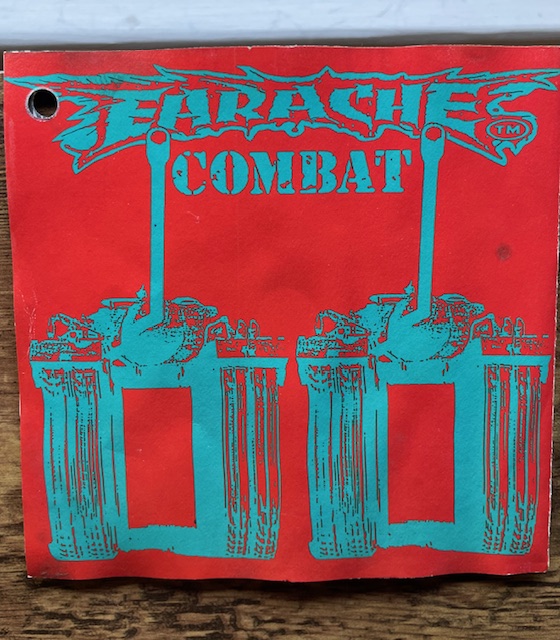
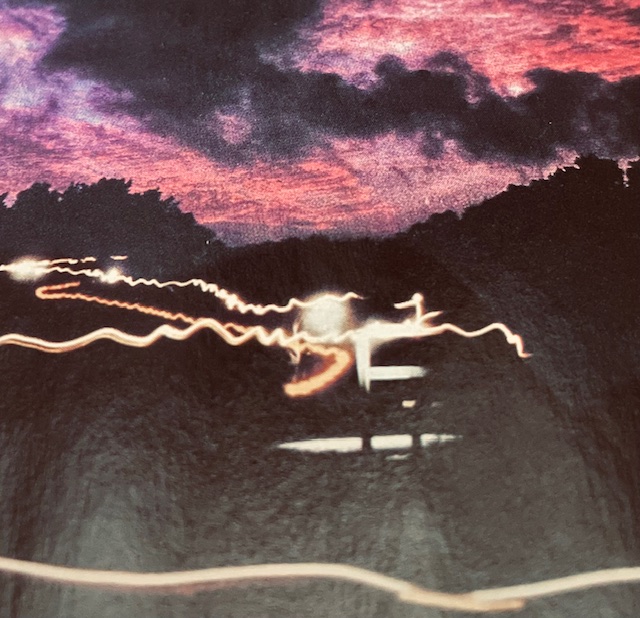
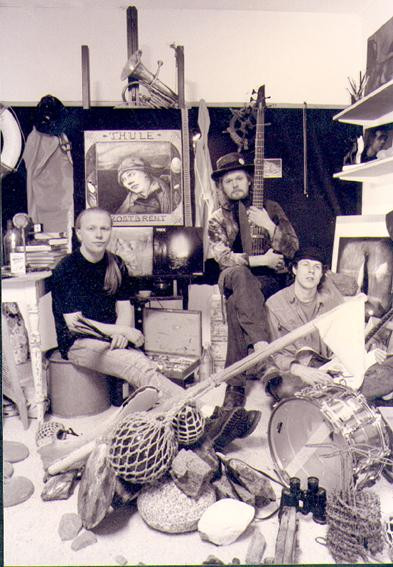


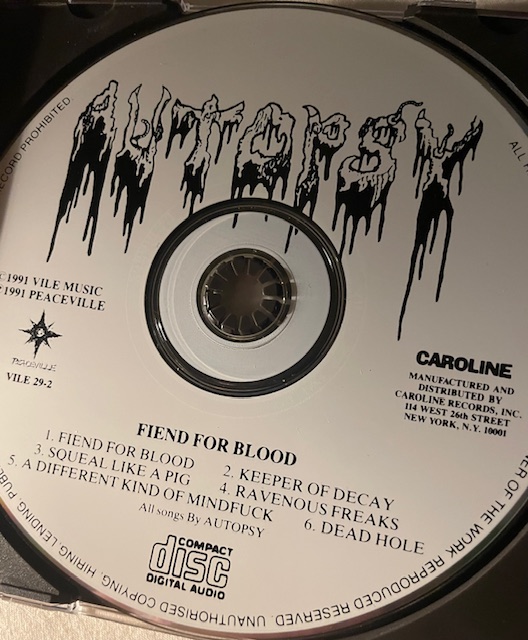


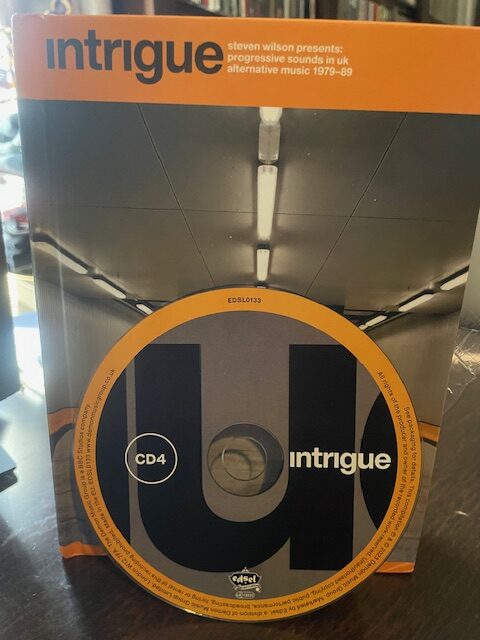



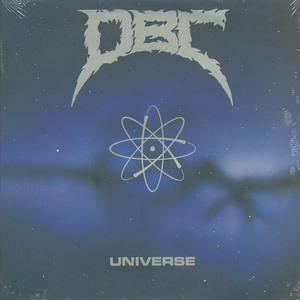




Great podcast. Gets you into some really cool music